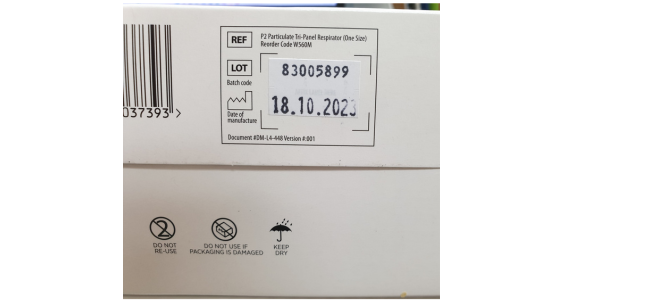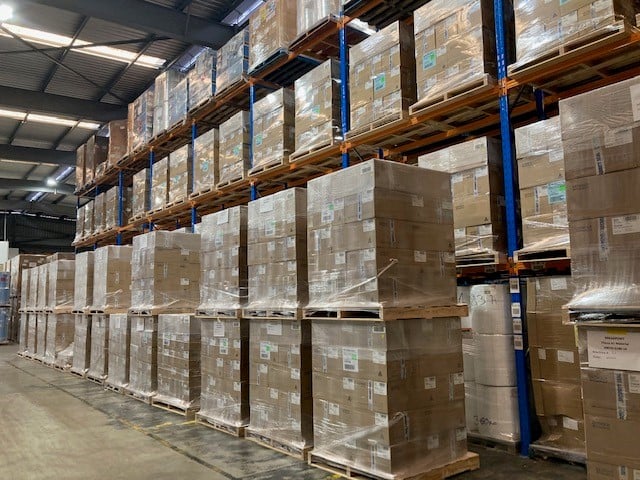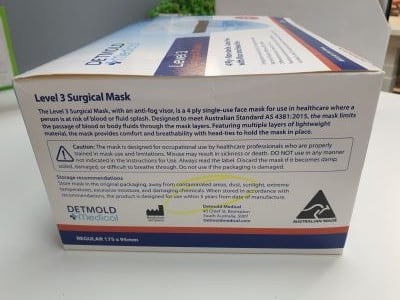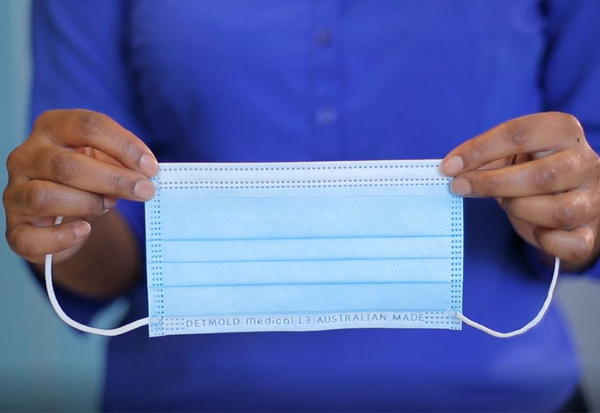In the wake of the pandemic, last cold & flu, fire, or allergy seasons, chances are that you are hanging on to leftover face masks, just in case. If you are planning to, or have been storing your disposable masks for long periods of time, it could be worth checking the expiration date so you can rest easy knowing your masks & respirators will still offer you full protection. While you are thinking of it, best to make sure that you are storing the face masks correctly.
The role of face masks
Surgical face masks and respirators act as a physical barrier to provide protection for the wearer against airborne particles. Designed to be worn over your nose and mouth, face masks are made from layered materials that help reduce the transmission of respiratory droplets, including potential pathogens like bacteria and viruses.
While medical and surgical face masks are single-use face masks that are commonly used in healthcare settings when the wearer is at low to moderate risk of blood or fluid splash.

Respirator masks tend to offer a higher level of protection compared to medical and surgical face masks and as they are close fitting, typically Fit Tested (fit testing) and Fit Checked, designed to protect both, the wearer and the wearer’s environment. Respirators are designed to filter out small particles, so they are recommended for use in hospital and clinical environments.
While face masks and respirators are still commonly used in healthcare/clinical settings and certain work or dusty/polluted environments they were a common part of everyday life during the COVID-19 pandemic as a measure to reduce the spread of the virus. Although it is likely that you would have donned your masks yourself during that time, did it ever cross your mind to check whether the masks are expired?
Do face masks expire?
In a nutshell - yes, face masks do expire. In Australia, manufacturers are required to print Year of Manufacture, a Date Code, or other means of traceability on the outer packaging. Most face masks and respirators have a shelf life of around three to five years, but it is always best to refer to the packaging, or manufacturer’s guidelines for the expiration date.
And while it is important to avoid using expired masks, it is also worth inspecting the condition of your face mask before use. Check for visible signs of wear and tear, like fraying, holes or broken or stretched elastic bands. If your face mask has expired, damaged or damp, it is probably not going to offer the level of protection you are after. In this case, you are generally better off disposing of your mask and swapping it for a fresh, new mask instead or only using the mask in low-risk environments.

Our Best Sellers
Why do masks have expiration dates?
From deterioration to regulatory obligations, there are several reasons why face masks expire:
- Material degradation: over time, the face mask materials, like the nose pieces and elastic bands deteriorate, impacting the effectiveness of the mask. If your face mask does not provide a secure fit, it can leave you at risk of exposure to contaminated air, viruses, bacteria, and disease. Exposure to environmental factors like humidity, sunlight and heat can cause these materials to slowly break down, making the mask less effective.
- Filtration efficiency: like the face mask materials, the filtration efficiency of the mask can decrease with time as a result of electrostatic charge decay. This is especially important for masks designed to filter out very small particles, such as respirators. The ability of the mask to effectively capture and block particles can decline with time, which can compromise its protective function.
- Quality assurance: manufacturers set expiration dates as a part of their quality control, testing and assurance processes. These dates are based on laboratory testing and calculations of how long the mask is expected to maintain its specified performance levels.
- Regulatory compliance: the Therapeutic Goods Administration (TGA) requires manufacturers to provide expiration dates for all medical devices supplied in Australia, including surgical masks and respirators. This ensures that the product meets the relevant safety and efficacy standards within a defined timeframe.
- User safety: expiration dates also serve as a reminder for users to regularly check and replace their masks to ensure they are using products that offer the intended level of protection. This safety measure helps to prevent the use of masks that may have degraded or become less effective over time.
While masks do have expiration dates, it is important to note that the actual shelf life may vary depending on factors such as storage conditions, the specific materials used in the mask and how well the mask has been maintained. It is essential to follow the manufacturer's guidance and replace masks that have passed their expiration date or have visible signs of wear and tear to ensure they continue to provide the expected level of protection.
Face mask storage
When it comes to storing your face mask, it is vital to keep your face mask in the right condition to ensure the shelf life of the product. Manufacturers will often print the storage recommendations on the outer packaging of your face masks, but as a general rule you can follow these guidelines:
- Store your face masks in a clean, dry place where they won't be crushed.
- Keep your face mask in the original packaging so you can easily refer to the face mask expiry date.
- Place your mask away from direct sunlight, excessive moisture, extreme temperatures, and hazardous chemicals.

Storing your face masks and respirators correctly will help to extend their shelf life by protecting them from dust, damage, and contamination. But before wearing your face mask, be sure to take the time to assess the condition of the mask. That way you know that your mask will provide the expected level of protection.
As one of the Southern Hemisphere's largest manufacturers of high-quality face masks and respirators, Detmold Medical produces a range of face coverings that have been designed for use in a variety of settings and recommended for use up to 5 years after date of manufacture. Use our respirator and face mask comparator to find the right mask for your needs or shop our range online.









